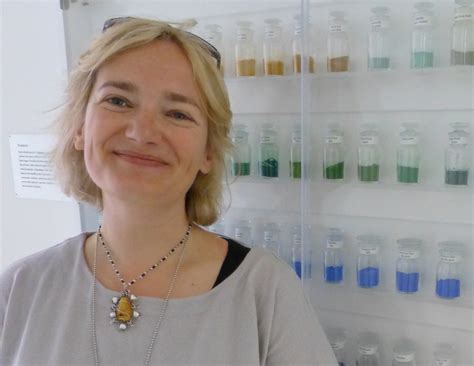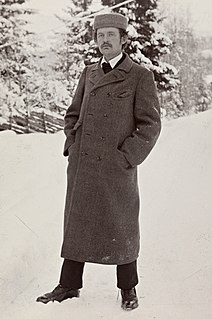A Quote by Deepak Chopra
In God's eyes, walking on water is no more miraculous than the ability of hemoglobin to bond with oxygen inside a red blood corpuscle.
Related Quotes
All the green in the planted world consists of these whole, rounded chloroplasts wending their ways in water. If you analyze a molecule of chlorophyll itself, what you get is one hundred thirty-six atoms of hydrogen, carbon, oxygen, and nitrogen arranged in an exact and complex relationship around a central ring. At the ring's center is a single atom of magnesium. Now: If you remove the atom of magnesium and in its exact place put an atom of iron, you get a molecule of hemoglobin. The iron atom combines with all the other atoms to make red blood, the streaming red dots in the goldfish's tail.
In 1879 the Bengali scholar S.M. Tagore compiled a more extensive list of ruby colors from the Purana sacred texts: ‘like the China rose, like blood, like the seeds of the pomegranate, like red lead, like the red lotus, like saffron, like the resin of certain trees, like the eyes of the Greek partridge or the Indian crane…and like the interior of the half-blown water lily.’ With so many gorgeous descriptive possibilities it is curious that in English the two ancient names for rubies have come to sound incredibly ugly.
I was walking down the road with two friends when the sun set; suddenly, the sky turned as red as blood. I stopped and leaned against the fence, feeling unspeakably tired. Tongues of fire and blood stretched over the bluish black fjord. My friends went on walking, while I lagged behind, shivering with fear. Then I heard the enormous infinite scream of nature.
But in a way you can say that after leaving the sea, after all those millions of years of living inside of the sea, we took the ocean with us. When a woman makes a baby, she gives it water, inside her body, to grow in. That water inside her body is almost exactly the same as the water of the sea. It is salty, by just the same amount. She makes a little ocean, in her body. And not only this. Our blood and our sweating, they are both salty, almost exactly like the water from the sea is salty. We carry oceans inside of us, in our blood and our sweat. And we are crying the oceans, in our tears.
Blood transforms the warm bath water and, in it, I see weakly that this was a mistake. The razor's cut is not deep, nevertheless the blood rushes out happily in the warm water as if kin to it, the same tender substance. Rising a new person transformed with an icy sense of error I go to the sink and turn on cold water which is not friendly to blood. The cut is deeper than imagined.
Apart from the obvious advantages of having ice to melt, filter, then drink, you can also break apart the water's hydrogen from its oxygen. Use the hydrogen and some of the oxygen as active ingredients in rocket fuel and keep the rest of the oxygen for breathing. And in your spare time between space missions, you can always go ice skating on the frozen lake created with the extracted water.
I knew, even as we touched that I had never wanted anything more in all my life. All my crabbed cravings were as a cupful of pond water beside the vast ocean of longing I felt surging through me. My head swam; my eyes blurred. I burned from the inside out as if my blood and bones were consumed with liquid fire.




































